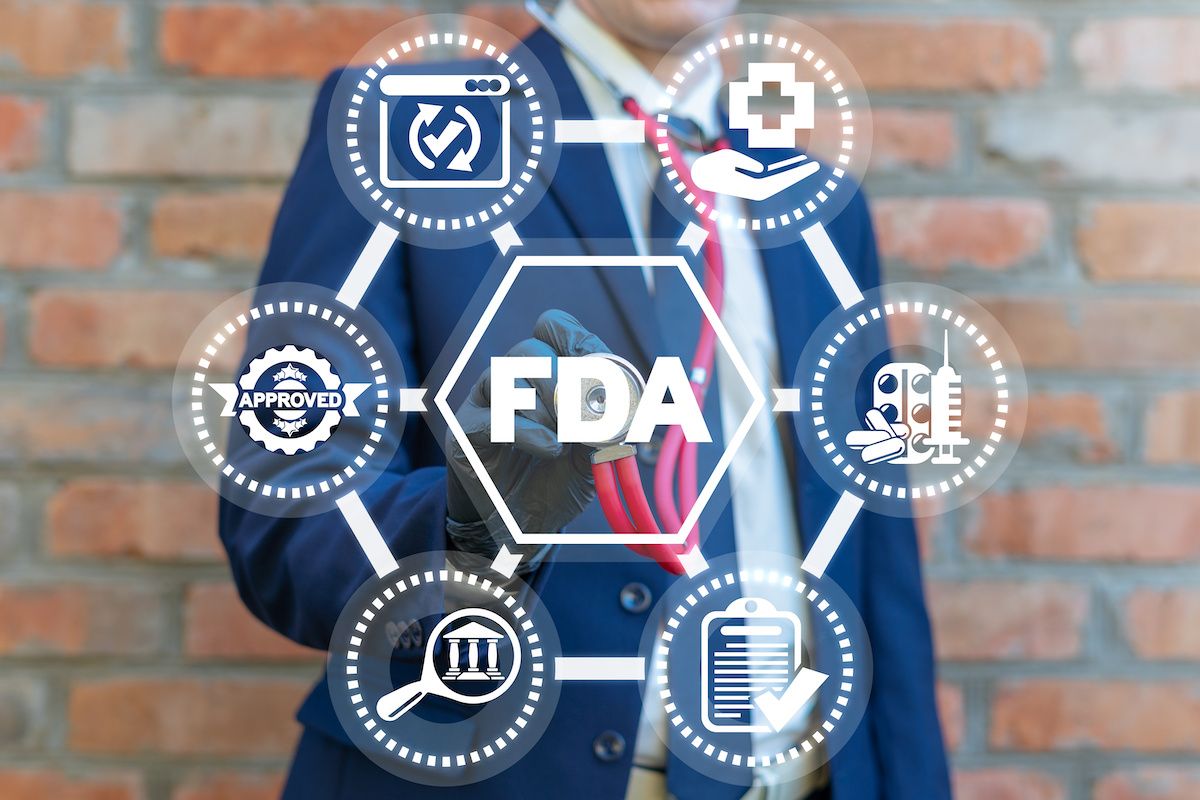- Bone Health
- Immunology
- Hematology
- Respiratory
- Dermatology
- Diabetes
- Gastroenterology
- Neurology
- Oncology
- Ophthalmology
- Rare Disease
- Rheumatology
FDA Draft Guidance Removes Switching Study Requirements for Biosimilar Interchangeability
The FDA has issued an update to its guidance on requiring switching study data for biosimilars to be granted interchangeability, citing new science that shows these studies aren’t needed to establish biosimilar safety.
The FDA issued draft its guidance on requiring switching study data to approve a biosimilar with interchangeability, citing new science that suggests that these data are not needed to establish the safety of switching to or from a biosimilar to another product of the same molecule.1
After much debate and calls to end switching study requirements, the FDA has released a draft update to its interchangeability requirements to allow for companies to submit a statement explaining why their current data package shows that switching from their biosimilars to a reference product is safe in lieu of switching study data.
Image credit: wladimir1804 - stock.adobe.com

“Since publication of the Interchangeability Guidance, experience has shown that for the products approved as biosimilars to date, the risk in terms of safety or diminished efficacy is insignificant following single or multiple switches between a reference product and a biosimilar product. Accordingly, FDA’s scientific approach to when a switching study or studies may be needed to support a demonstration of interchangeability has evolved,” the FDA wrote in the update.
The draft guidance comes after many experts have issued calls to remove switching study requirements for interchangeability, more reviews showing that switching from a reference agents to a biosimilar2 or from one biosimilar to another3 is safe, and arguments over whether interchangeability designations foster confusion for patients and providers.4 There have also been calls to remove interchangeability labels entirely5 because the US is the only country that uses them and some politicians have introduced legislation to remove switching study requirements.6
Interchangeability labels allow for a biosimilar to be exchanged for a reference product at the pharmacy level without the pharmacists having to obtain permission from the prescriber, making it easier and less time-consuming for patients to get their medications. However, of the 13 approved biosimilars7 that have been deemed interchangeable, 6 were approved without switching data (n = 2 ranibizumab, 2 insulin glargine, 2 aflibercept), either because they are administered intravitreally8 or because the FDA has waived the requirement for insulin biosimilars.9 Additionally, 4 of these products are only available through the medical benefit, meaning that the label is not being used for its intended purpose.
Switching studies in general can be a big expenditure for companies as interchangeability is often seen as providing companies a leg up against their competitors by enticing payers and pharmacy benefit managers to add their products to formularies and by acting as an extra seal of approval from the FDA.
The new draft guidance states that companies wishing to have a biologics license application (BLA) for a biosimilar reviewed for interchangeability status have the option to submit switching study data or a statement expressing why the data in their current package already demonstrates switching safety. Specifically, the statement should include, "any other information the applicant considers relevant to support a showing that the risk, in terms of safety and diminished efficacy, from alternating or switching between the reference product and the proposed interchangeable product is not greater than the risk of using the reference product without such 116 alternation or switch."
Companies with pending BLAs can also submit an amendment to their application featuring the aforementioned information.
In a statement from FDA, Sarah Yim, MD, director of the Office of Therapeutic Biologics and Biosimilars commented, “The recommendations in today’s draft guidance, when finalized, will provide clarity and transparency about the FDA’s thinking and align the review and approval process with existing and emerging science. We have gained valuable experience reviewing both biosimilar and interchangeable biosimilar medications over the last 10 years. Both biosimilars and interchangeable biosimilars meet the same high standard of biosimilarity for FDA approval and both are as safe and effective as the reference product.”9
With the publication of the draft guidance, the FDA said that it is looking to take comments on a revised approach where such studies will not be needed entirely. Those wishing to submit an online or written comment can do so through September 20, 2024.
References
1. FDA. Considerations in demonstrating interchangeability with a reference product: Update. Updated June 20, 2024. Accessed June 20, 2024. https://www.fda.gov/regulatory-information/search-fda-guidance-documents/considerations-demonstrating-interchangeability-reference-product-update
2. Ferreri D. Analyzing safety of switching from originators to biosimilars: A meta-analysis of 21 trials. The Center for Biosimilars®. February 10, 2024. Accessed June 20, 2024. https://www.centerforbiosimilars.com/view/analyzing-safety-of-switching-from-originators-to-biosimilars-a-meta-analysis-of-21-trials
3. Jeremias S. New evidence confirms safe biosimilar-to-biosimilar switching. The Center for Biosimilars. May 28, 2024. Accessed June 20, 2024. https://www.centerforbiosimilars.com/view/new-evidence-confirms-safe-biosimilar-to-biosimilar-switching
4. Wollett G. Confusion persists around the interchangeability designation for biosimilars. The Center for Biosimilars. November 23, 2023. Accessed June 20, 2024. https://www.centerforbiosimilars.com/view/confusion-persists-around-the-interchangeability-designation-for-biosimilars
5. Jeremias S. Webinar addresses solutions to improve adalimumab biosimilar uptake. The Center for Biosimilars. March 18, 2024. Accessed June 20, 2024. https://www.centerforbiosimilars.com/view/webinar-addresses-solutions-to-improve-adalimumab-biosimilar-uptake
6. Jeremias S. Senator reintroduces Biosimilar Red Tape Elimination Act. The Center for Biosimilars. July 14, 2023. Access June 20, 2024. https://www.centerforbiosimilars.com/view/senator-reintroduces-biosimilar-red-tape-elimination-act
7. The Center for Biosimilars biosimilar approvals. The Center for Biosimilars. Updated March 22, 2024. Accessed June 20, 2024. https://www.centerforbiosimilars.com/biosimilar-approvals
8. Jeremias S. Seeing Eye to Eye: FDA's Dr Sarah Yim discusses efforts to increase confidence in ophthalmology biosimilars. The Center for Biosimilars. January 29, 2023. Accessed June 20, 2024. https://www.centerforbiosimilars.com/view/seeing-eye-to-eye-fda-s-dr-sarah-yim-discusses-efforts-to-increase-confidence-in-ophthalmology-biosimilars
9. FDA updates guidance on interchangeability. News release. FDA; June 20, 2024. Accessed June 20, 2024.
Newsletter
Where clinical, regulatory, and economic perspectives converge—sign up for Center for Biosimilars® emails to get expert insights on emerging treatment paradigms, biosimilar policy, and real-world outcomes that shape patient care.
